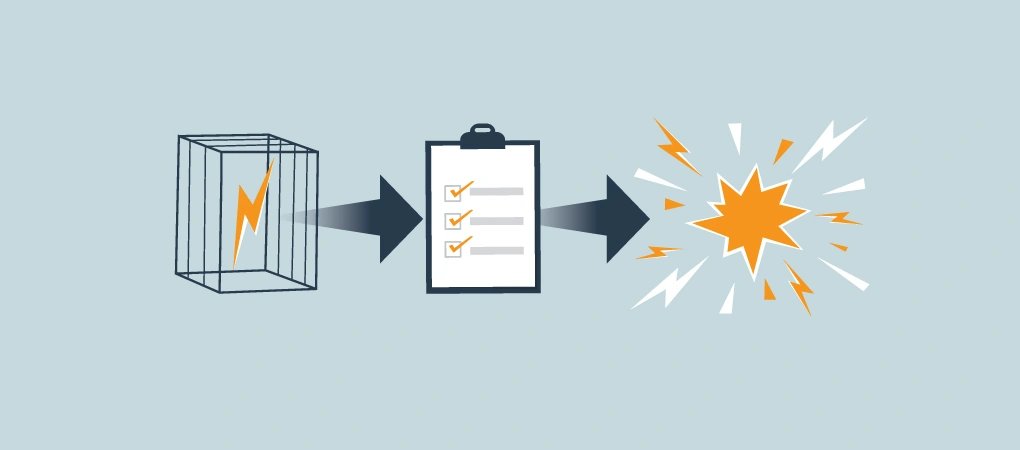4 Winning Habits From Morning Radio That Podcasters Can Use To Thrive
The Strategic Coach Team

More and more entrepreneurs are realizing that a well-produced podcast can be an invaluable marketing tool to build a brand and tell their story.
At Strategic Coach, we produce nine different series, and the global reach of our shows has allowed us to share our concepts and capture the interest of entrepreneurs around the world.
Podcasting is what allows us to build trust and create new relationships—even in our sleep.
What does it take to make a great podcast?
People with years of broadcasting experience often make the podcast process look easy. There’s a misconception that it’s as simple as grabbing a microphone and telling a fantastic story the first time you sit down.
The reality is there’s so much more that goes into it.
Having a natural sounding conversation in the most unnatural of settings takes practice. You have to commit to plenty of mic time before you can forget it’s in front of you. And this is when your performance will really shine.
And while traditional radio seems to be a thing of the past, there are valuable lessons to be learned from morning radio veterans to make your show more intimate, more inclusive, better structured, and more successful.
Here are four easy-to-adopt strategies to upgrade your podcast performance today.
Steer clear of inside jokes or name-dropping.
You’re of course familiar with everything you’re discussing, but don’t assume your listeners are, even if you’ve been hosting the show for a long time. You can’t leave out new fans if you want them to stick around.
Be conscious of mentioning names or events without giving any context. It’s alienating and will turn people off from your show. It’s as frustrating as going to a party and hearing nothing but stories about people you’ve never met all night long.
Instead of mentioning “Bob,” for example, say “Our colleague Bob from ABC Company in Texas.” Tell the listener who Bob is and why he’s relevant to your story.
Don’t forget to tell the listener exactly what happened to make them feel like they’re part of the conversation. It’s only a few extra seconds on your part but will keep your listeners coming back.
Looking for your next podcast series? Check out our Strategic Podcasts hosted by entrepreneurs for entrepreneurs, and discover your potential for growth.
Use the word “you” and use it often.
Popular shows may have thousands, even millions of listeners, but everyone is listening at different times and in their own space. And virtually all podcast listening happens alone.
The word “you” is powerful because it creates an intimacy with your listener. Everyone enjoys feeling a one-on-one connection with the host of their favorite shows and the sense that you’re speaking directly to them.
Always pretend you’re telling a private story and never talk as though you’re giving a speech or addressing a crowd. Avoid opening statements like, “I’d like to welcome all my listeners out there in podcast land.”
Instead, opt for individual and warm greetings like, “Thank you for joining me. I hope you enjoy the conversation ahead.” This is key to capturing and connecting with your audience.
Know how to end a story gracefully.
If you had the chance to eavesdrop on the most successful radio shows from inside the studio, you’d hear this single question asked more than any other, “What’s the out?”
Knowing how to gracefully end a story is even more important than how you begin it. When you charge into a narrative with no clear idea of how you’re going to end it, it leads to rambling and you’ll be much less happy with your performance.
Get into the habit of asking yourself, “What’s the out?”
You’ll find a much smoother path from beginning to end this way. Your show will also sound more cohesive, better structured, and more interesting, and you’ll avoid the danger of feeling like you’ve wasted your listeners' time.
Avoid filler words and bumpy transitions.
Have you ever noticed the number of times you use words and phrases that don’t add much value to the conversation?
Words such as “like,” “um,” and “you know” are used when speaking to hold our place or to keep the stage. But the best podcast shows have great flow and are free of unnecessary fillers.
This will also dramatically shorten your editing time, and you’ll be able to publish more episodes in less time—a proven technique to build your audience faster.
Finally, try to avoid bumpy transitions between speakers. Radio hosts routinely use hand gestures to indicate that they’re finished speaking. A simple thumbs-up or one finger in the air can indicate that you’re ready to pass the conversation to your partner. Try this technique and you’ll find it really works to avoid tripping over your partner in the middle of their story.
With the explosion in popularity of podcasts, the space is getting crowded. It’s never been more important to make your show stand out by producing the best sounding and most concise episodes possible.
Adopting these tips from seasoned broadcasters is a first step to making your show the one your clients and prospects keep coming back to.







